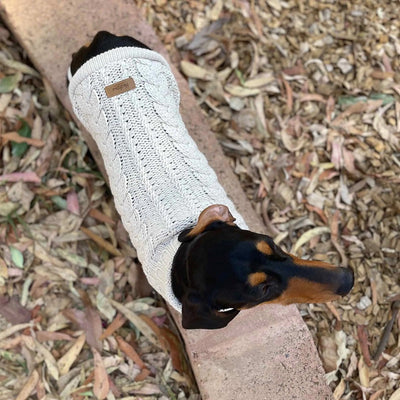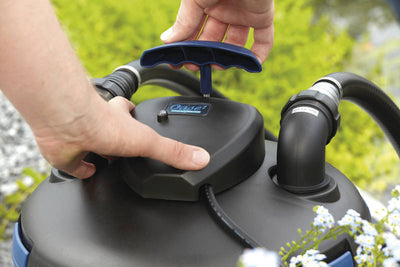
If you're a cat owner, you may have experienced the unpleasant surprise of finding a pile of vomit on your floor.
While occasional vomiting is normal for cats, frequent or persistent vomiting after meals can be a cause for concern.
In this guide, we'll explore the common reasons (some may surprise you) why cats throw up after eating and provide tips on how to prevent this issue.
Hairballs and Digestive Issues.
One of the most common reasons why cats throw up after eating is due to hairballs. Cats groom themselves by licking their fur, and in the process, they ingest loose hair.
This hair can accumulate in their stomach  and form a hairball, which can cause discomfort and lead to vomiting. Another common cause of vomiting in cats is digestive issues, such as food intolerance or inflammatory bowel disease. If your cat is frequently throwing up after meals, it's important to consult with your veterinarian to determine the underlying cause and develop a treatment plan.
and form a hairball, which can cause discomfort and lead to vomiting. Another common cause of vomiting in cats is digestive issues, such as food intolerance or inflammatory bowel disease. If your cat is frequently throwing up after meals, it's important to consult with your veterinarian to determine the underlying cause and develop a treatment plan.
Eating Too Quickly or Overeating.
Another common cause of cats throwing up after eating is eating too quickly or  overeating. When cats eat too quickly, they may swallow air along with their food, which can lead to vomiting. Overeating can also cause vomiting, as the stomach becomes too full and cannot properly digest the food.
overeating. When cats eat too quickly, they may swallow air along with their food, which can lead to vomiting. Overeating can also cause vomiting, as the stomach becomes too full and cannot properly digest the food.
To prevent these issues, try feeding your cat smaller, more frequent meals throughout the day and consider using a slow feeder bowl to encourage slower eating. Try mix feeding your cat with both wet and dry cat food, we recommend selecitng digestive formulas that are gentle on the stomach.
Food Allergies or Intolerances in Cats.
Food allergies or intolerances can also cause cats to throw up after eating. Common allergens for cats include dairy, beef, and fish. If you suspect your cat has a food allergy or intolerance, try switching to a hypoallergenic or limited ingredient diet and monitor their symptoms.
Common allergens for cats include dairy, beef, and fish. If you suspect your cat has a food allergy or intolerance, try switching to a hypoallergenic or limited ingredient diet and monitor their symptoms.
If the vomiting persists, consult with your veterinarian for further testing and treatment options.
Stress and Anxiety in Cats
Stress can be a cause of a cat throwing up after eating. When a cat is under  stress, their body releases stress hormones that can affect their digestion and cause gastrointestinal issues, such as vomiting.
stress, their body releases stress hormones that can affect their digestion and cause gastrointestinal issues, such as vomiting.
Additionally, stress can also cause cats to overeat or eat too quickly, which can also lead to vomiting. Therefore, if you notice your cat throwing up after eating and suspect that stress may be the cause, it is important to identify and address the source of the stress in order to alleviate the symptoms.
Medical Conditions or Illnesses.
In some cases, frequent vomiting after eating could be a sign of an underlying medical condition or illness. Gastrointestinal issues such as inflammatory bowel disease, pancreatitis, or gastrointestinal obstructions can cause vomiting in cats. Other potential causes include liver or kidney disease, hyperthyroidism, or cancer. If your cat is consistently throwing up after eating, it’s important to take them to the vet for a thorough examination and diagnosis.
What can I do to Prevent my Cat from Throwing up After Eating?
Depending on the underlying cause of your cat’s vomiting, there are several prevention and treatment options available.
- Switch to a digestive or hairball formula of cat food
- Feed your cat smaller meals more frequently
- Try mix feeding with wet and dry cat food
- Add some pet grass to their diet
- Use a slow feeder cat bowl
- Ensure that your cat drinks plenty of water
- Use a pet relaxer spray or diffuser
If your cat has a food allergy or intolerance, switching to a hypoallergenic diet may help. For cats with gastrointestinal issues, a prescription diet or medication may be necessary. In cases of hairballs, regular grooming and the use of hairball remedies can help prevent vomiting.
It’s important to work with your veterinarian to determine the best course of action for your cat’s specific needs.
Can Pheromones Help Cats with Stress and Anxiety?
The best remedy for cats displaying these symptoms is to use a plug in pheromone that will alleviate these symptoms. The pheromones are formulated to mimic those emitted from mother cats (Queen) to her kittens.
Facial pheromones are natural chemical signals that cats use to communicate with each other. These pheromones are produced in the glands of a cat's face and are deposited on objects and other animals when the cat rubs its face on them. These facial pheromones can have a calming effect on cats and can be used to help reduce stress and anxiety in felines.
When a cat smells facial pheromones, it can trigger the release of certain chemicals in the brain that help to promote relaxation and reduce anxiety. This can be particularly helpful in situations where a cat is feeling stressed or anxious, such as when introducing a new pet into the household or when moving to a new home.
Facial pheromones for cats are available in the form of sprays, diffusers, and collars. These products can be used to help calm and relax cats in stressful situations.
It is important to note that while some of these expert tips may be more helpful than others, when used in conjunction with other products and advise you will see best results.
© weknowpets 2023








